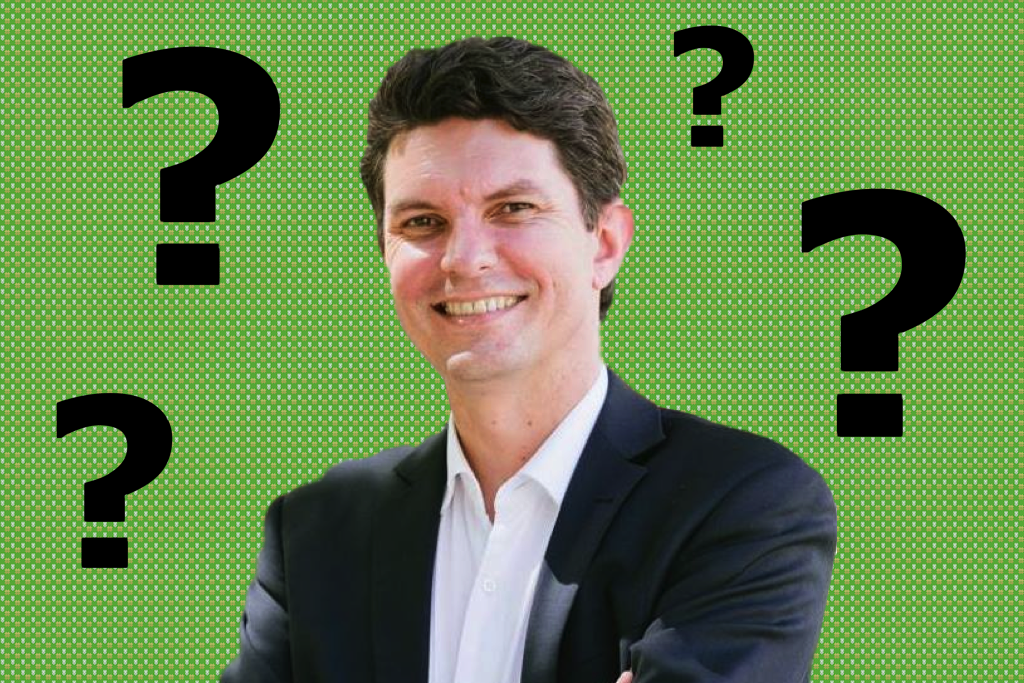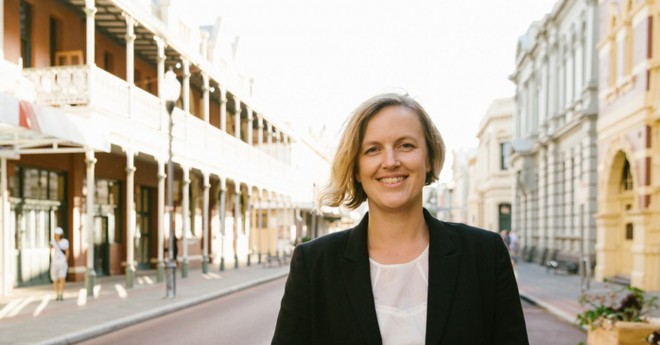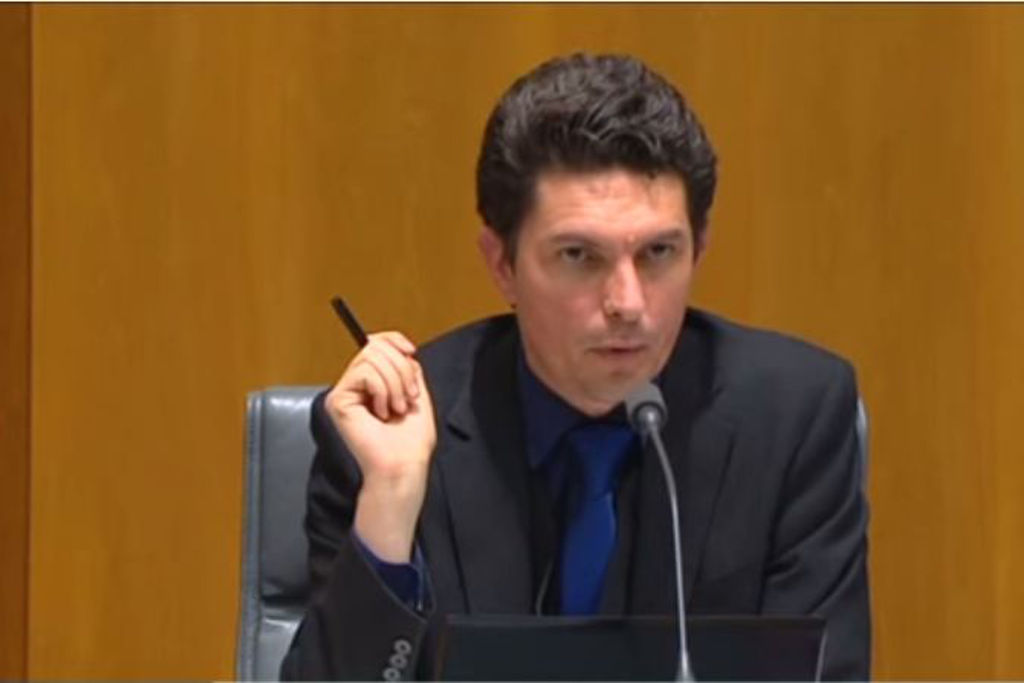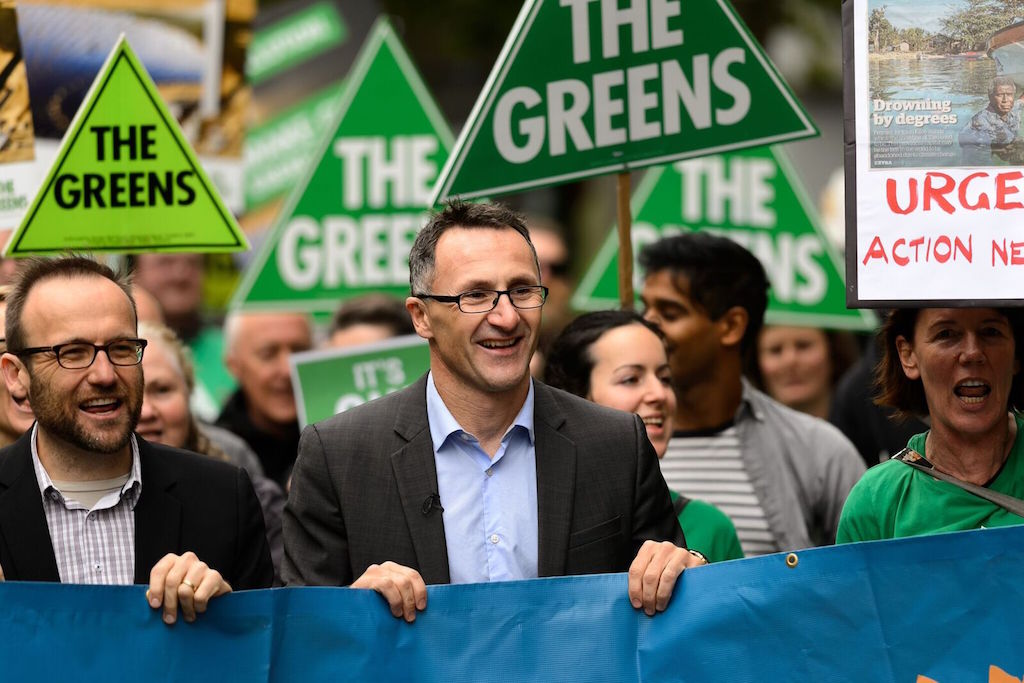Inside The Greens’ Messy Battle To Replace Scott Ludlam
Is this a big turning point for the party?

Soon after Scott Ludlam announced his shock resignation from federal parliament last Friday speculation turned to who would replace him in the Senate.
Ludlam was one of the highest profile Greens MPs and had built a strong following, particularly amongst younger Australians, off the back of his articulate critiques of the Coalition government and his defence of civil liberties and digital rights.
His departure leaves big shoes to fill during a tumultuous time for the Greens, who have spent the last month racked by internal division and very public infighting.
What Happens Next?
Now that Ludlam has resigned, there are a number of formal steps that need to be taken to before his replacement can be appointed. The Senate needs to refer to the issue to the Court of Disputed Returns, which is actually just the High Court with a fancy sounding name. Once that happens the Court will order a recount of the WA Senate election.
But there’s a small problem: the Senate isn’t actually sitting again until August 8, which could delay the whole process considerably. Greens sources have told Junkee that the party is looking into speeding up the process by getting the Senate President, Stephen Parry, to refer the issue to the High Court directly instead of having to wait for federal parliament to reconvene.
Once a recount is confirmed, it is expected to elect the third candidate on the Greens ticket from the 2016 election: 22-year-old Jordon Steele-John. Steele-John was the Greens candidate in the federal seat of Fremantle at the 2013 election and works in disability advocacy.
But even though Steele-John is legally entitled to the seat, he’s almost certainly not going to be Australia’s newest senator.
Party Games
Last Friday, on the same day Ludlam announced his resignation, Steele-John addressed speculation surrounding his potential new political career on Facebook.
“If it comes down to it, I’d be happier putting the choice of candidate back into the hands of our party membership,” he wrote. Over the weekend he added “Whatever decisions I make in the coming weeks will be made solely with reference to the interests and principles of The Greens, a movement of which I am so proud to be a part. This will be in no way influenced by my age or disability.”
Even though Steele-John is entitled to the seat, he can resign his position which would lead to a casual vacancy to be filled by a nominee of the WA Greens.
The reasons why Steele-John is unlikely to take up the role have to do with the processes the Greens use to select their election candidates. In the lead-up to the last election the party preselected its two lead candidates for the Senate: Ludlam and his colleague Rachel Siewert, who has been a sitting senator since 2004.
The rest of the Senate ticket, including Steele-John, was decided by a party committee with the intention of reflecting broad demographics and representing different communities.
Now that a position in the Senate has become available, senior Greens figures in WA have been arguing that it should be filled through an open preselection process involving all of the party’s members, rather than simply appointing Steele-John to the position.
Over the weekend the party’s main decision-making body, the Representatives Council, discussed a process around a potential preselection. A final decision hasn’t been made, but multiple WA Greens sources told Junkee that Steele-John will step aside and that a preselection would be held later this year — depending on when the High Court officially orders a recount.
The Favourite
The promise of a seat in the Senate without having to worry about an election campaign is pretty alluring to any wannabe politician, so there’s likely to be a long list of candidates.
But according to WA Greens sources Junkee has spoken to, the frontrunner is Kate Davis, the principal solicitor at Tenancy WA. Davis has been a member of the Greens since she was a teenager and ran for the seat of Fremantle at the last federal election, attracting a swing of nearly six percent.
“If Kate runs, she will win.”
She has a high profile within the party and is regularly mooted as a prospect for federal parliament. One source described her as deeply committed to internal party democracy and process, which may be particularly relevant given the recent stoush between NSW senator Lee Rhiannon and party leader Richard Di Natale over the right of party members to dictate policy.

Kate Davis is the most likely candidate to succeed Scott Ludlam.
Another source said that she “a consensus builder”. The WA branch of the Greens has historically prioritised party unity and consensus over ideology.
“If Kate runs, she will win,” the source added.
What Kind Of Party Do The Greens Want To Be?
The public brawl between the NSW party and the federal parliamentary wing of the Greens highlighted long-running divisions. The parliamentary leadership of the Greens has long argued that MPs need as much flexibility as possible when it comes to policy and legislation, while the NSW Greens believe MPs should be bound to policy developed by party members.
The NSW Greens have traditionally argued for a more radical approach to policy and have resisted Di Natale’s attempts to “mainstream” the Greens. Some senior WA Greens figures are also sympathetic to the NSW perspective.
After the Greens disappointing election result last year, the party’s former co-convenor Christine Cunningham told The Guardian that “In a world desperate for change and hope, we offered a centrist position summed up in a vague slogan.
“We can continue to be led by a nice-guy, mainstream footy-playing doctor and negotiate incremental change … Or maybe as a party of really smart, but often too-privileged-to-quite-get-it members, we should take a long hard look at ourselves and make some radical changes.”
Junkee understands that Cunningham, an academic at Perth’s Edith Cowan University, is also weighing up a bid for Ludlam’s Senate seat. During the recent battle between the NSW Greens and Di Natale, Cunningham tweeted her support for Rhiannon and argued that the party leader should be elected by members.
It's time @TheGreensWA stepped up & advocated strongly for member leadership vote & binding our federal senators
— Christine Cunningham (@DrCCunningham) July 2, 2017
If Cunningham was to run, the preselection would serve as a proxy for debate about the party’s future direction. While Davis is also seen as a promoter of party democracy, sources acknowledge she’s less likely to directly confront the party leadership than Cunningham.
What About Larissa Waters?
Yesterday Queensland Greens senator Larissa Waters announced her resignation from parliament revealing she was, like Ludlam, a dual-citizen. Her likely immediate replacement is Andrew Bartlett, a former leader of the Australian Democrats.
Unlike Ludlam, who is bowing out of politics for now, Greens sources told Junkee that Waters is likely to step back into the ring potentially as early as the next federal election. The Queensland party is yet to finalise its preselection process for the election but there is nothing preventing Waters from re-nominating once the contest kicks off.
The loss of both Ludlam and Waters is a serious setback for the Greens. Together they represent 20 percent of the Greens entire federal party room. Both had been touted as future leaders, and they represented the party’s next generation. Party members are still reeling from the events of the past week, but soon they’ll have to stop grieving and turn their attention to who replaces them, and what that means for the future direction of the Greens.
–
Osman Faruqi is Junkee’s News/Politics Editor. He is also a former office-bearer of the Australian Greens and has previously worked for Greens MPs.



